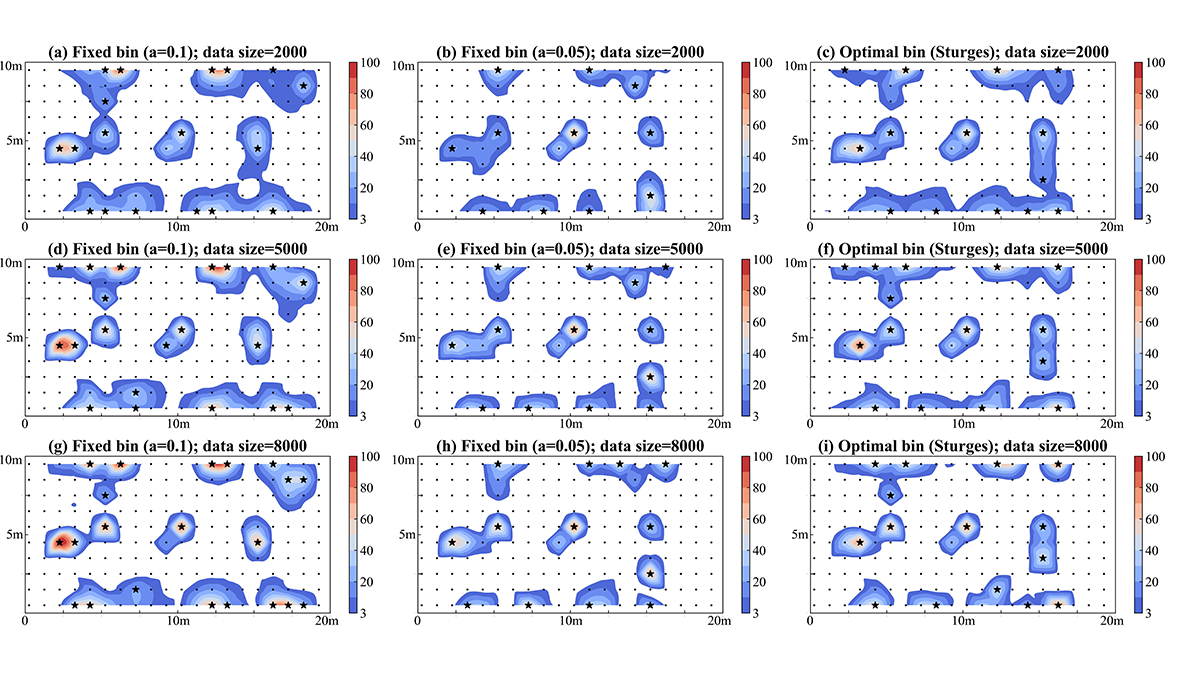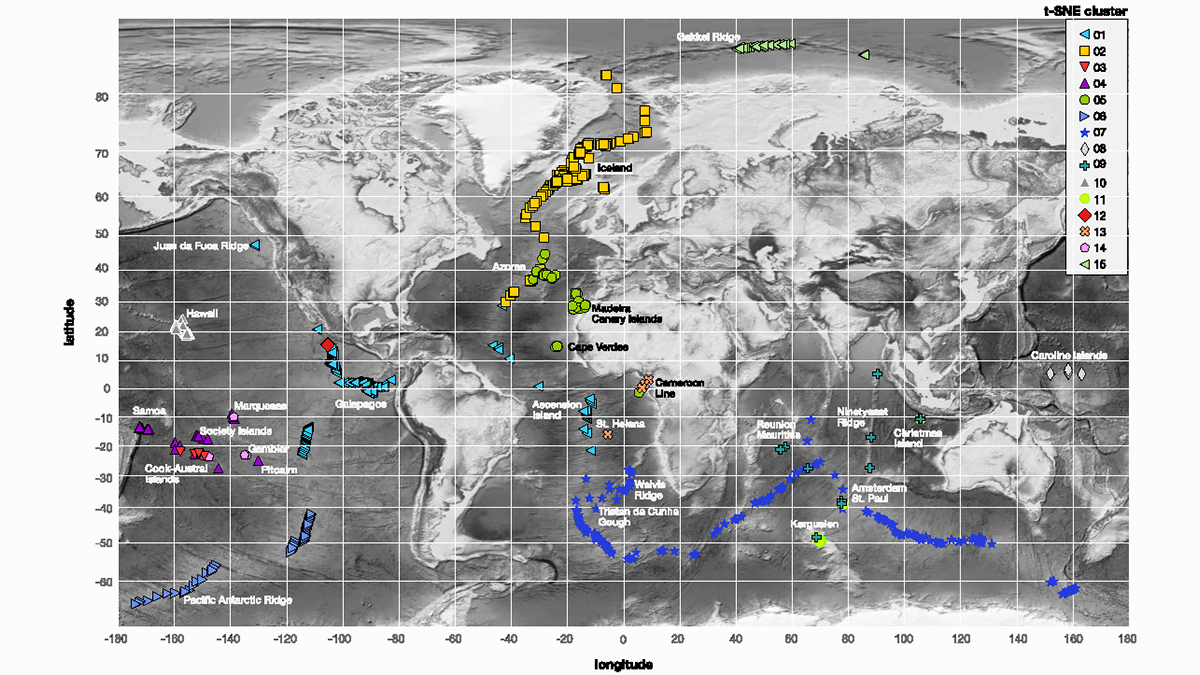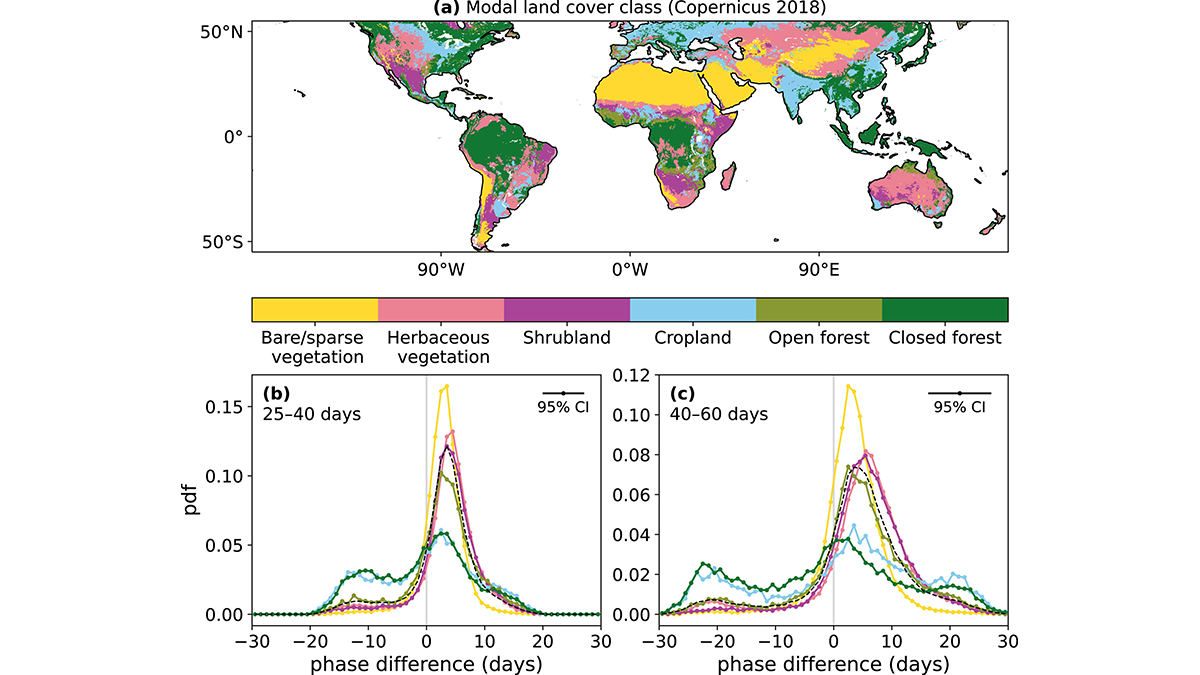Large data sets can be generated using deep learning to improve the design of observation networks for monitoring subsurface flow and transport.
machine learning & AI
Enhancing Earthquake Detection from Orbit
A new application of machine learning boosts scientists’ ability to use data from satellite navigation systems to detect and warn of earthquakes.
Are We Entering the Golden Age of Climate Modeling?
Thanks to the advent of exascale computing, local climate forecasts may soon be a reality. And they’re not just for scientists anymore.
Machine Learning Helps to Solve Problems in Heliophysics
A new special collection invites papers pertaining to the use of machine learning techniques in all sub-fields of heliophysics.
Machine Learning Looks Anew at Isotope Ratios in Oceanic Basalts
While past attempts to define isotopic endmembers and assign them a geodynamic significance ended in controversy, a machine-learning clustering algorithm offers a solution to this classical problem.
Deep Learning for Hydrologic Projections Under Climate Change
Extrapolation or not? Big data may help deep learning to go places where it has not been before by transferring learned hydrologic relationships.
How Quantum Computing Can Tackle Climate and Energy Challenges
The day is coming when quantum computers, once the stuff of science fiction, will help scientists solve complex, real-world problems that are proving intractable to classical computing.
Satellites Get First Full-Year View of Arctic Sea Ice Thickness
The AI-based monitoring method may unlock data that could improve shipping safety and climate predictions.
Tracking Climate Through Ship Exhaust
International regulations have reduced aerosol pollutants released from ships. Now, researchers want to use ship tracks to better understand the ambiguous effects that cleaner air has on climate.
Quantifying Changes in Midlatitude Subseasonal Prediction Skill
The differences between future and present subseasonal predictability in the Northern Hemisphere provided by the tropics are evaluated using neural networks.










